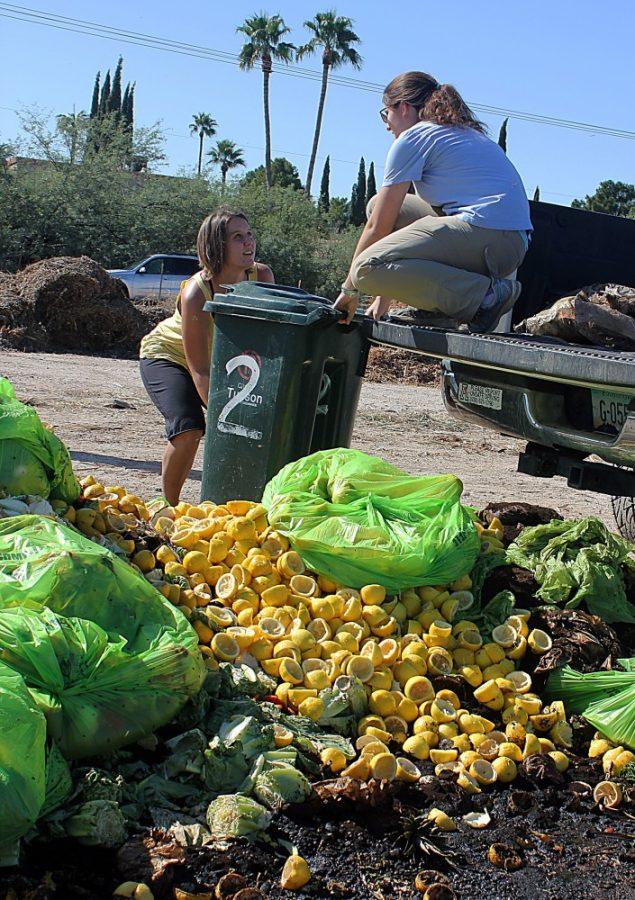The Compost Cats, a UA sustainability club, gave its first composting tour on Saturday to provide sustainability education to the public.
The tour, which took place at the Controlled Environment Agriculture Center, showed participants how compost is made from the collection of food waste to the process of decomposition into fertilizer.
“I think the tour went really well,” said Rachel Maxwell, a environmental sciences senior and a member of Compost Cats. “It’s especially exciting because we started this over two years ago, so the fact that I can physically can see piles here and that people are actually interested in coming to see what we are doing, it’s great.”
Compost Cats, formerly known as Compost Go-Live, is a club made up of UA students who collect compostable food waste from the Student Union Memorial Center and nearby businesses around Tucson to create compost that is then donated to the university to be used for agricultural purposes. The long-term goal of the project is to become a small business that creates fertilizer, which could be sold to retailers including Home Depot and Walmart.
Taryn Contento, an environmental sciences junior and student employee for Compost Cats, said she is in charge of the garden that uses compost created by the club.
“We’re sprouting some beans right now, a little cilantro and next weekend, onions. To be involved on campus, there is a lot of opportunity to be hands on,” Contento said. The UA Green Fund awarded the club a $58,000 grant in March. The club uses the money to pay student employees as well as maintain equipment. This includes a tractor and water tank to help break the compost up into long sections called windrows. Maxwell said she thinks that by showing people what can be done on a large scale for sustainability, they will be more inclined to do a small part in their everyday lives.
“We really want people to know what the university is doing to show people that it is really easy to live a sustainable lifestyle,” she said. “If the school is doing their part, then the community can do their part and hopefully if we get the community to do their part, then the individual will do their part as well.”
The next tour the club will host is for the Arizona Blue Chip Program, a leadership development program that combines academic leadership courses and extracurricular activities. Compost Cats is also involved in other projects and programs around campus like preparing to donate their compost to the UA Community Garden on Highland Avenue.
“Food waste from the student union and other business comes here, makes compost, and then goes into the UA Community Garden where we grow food with it again,” said Chet Phillips, a graduate student studying arid lands resource sciences and member of Compost Cats. “It kind of completes the circle.”








